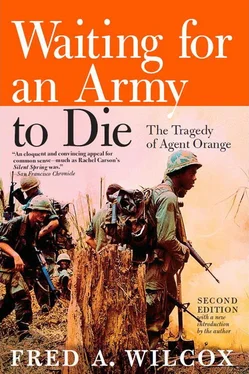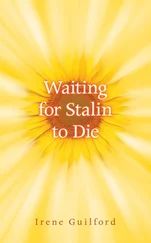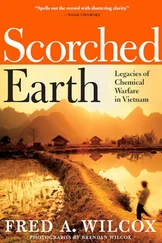Zumwalt chastises the Veterans’ Advisory Committee on Environmental Hazards for its “blanket lack of impartiality. In fact, some members of the Advisory Committee and other VA officials have, even before reviewing the evidence , [author’s italics] publically denied the existence of a correlation between exposure to dioxin and adverse health effects.” 2
He charges that Monsanto Corporation studies conducted on its employees to ascertain the effects of their exposure to dioxin were not only fraudulent, but had been “repeatedly cited by government officials to deny the existence of a relationship between health problems and exposure to agent Orange….” 3
“Any Vietnam Veteran, or Vietnam Veteran’s child who has a birth defect,” writes Admiral Zumwalt, “should be presumed to have a service-connected health effect if that person suffers from the type of health effects consistent with dioxin exposure….” 4
Vietnam veterans had been right all along. The government and the chemical companies had conspired for many years to deny them help. Government officials had in fact lied, scientists had cooked the research books, the Ranch Hand Study was a fraud, and officials sworn to support veterans had, instead, worked diligently to undermine them.
No one really knows, or ever will know, the exact number of US servicemen who have died from the effects of Agent Orange. We do not know how many veterans’ children were born with serious birth defects, how many young wives suffered numerous spontaneous abortions, or how many victims of Agent Orange, suffering from chronic pain and depression, might have taken their own lives.
Published in 1983, Waiting for an Army to Die ended with this warning:
“Vietnam veterans are our future, and that future is now.”
Since then, the cancer epidemic in this country and other parts of the world has killed millions of men, women, and children. According to the Institute of Medicine (202), cancer is the second leading cause of death in the United States. “This year alone,” says the IOM, “approximately 560,000 Americans will die of cancer-related causes and almost 1.4 million new cancer cases are expected to be diagnosed. (IOM report, August 2002). The report goes on to say that there are approximately eighty thousand industrial chemicals now registered for use in the United States, “but very few have been tested for their health effects, singly, synergistically, or with different kinds of genetic patterns.” 5
The United States of America is a chemical warzone, a place of never ending fear that our family members, friends and neighbors will develop cancer. We watch loved ones undergo radiation treatment, chemotherapy and major operations. We wait, hope, and pray for miracles. The news media encourage us not to despair. Scientists will find a cure for cancer. Our children will live long lives. We will be there to see them marry. We will get to watch our grandchildren grow up. Meanwhile, corporations that place profit over people continue to poison our world with impunity.
For US soldiers and those who served from other countries in Vietnam, the Vietnamese people and their majestic rain forests, and children born so disabled they will never walk or talk or marry or have children of their own, Agent Orange is a monumental tragedy. Vietnam veterans were a throwaway army; the Vietnamese were a throwaway people. Children in this country and throughout the world are throwaway children. We are all Vietnam veterans; we are all Vietnamese, all guinea pigs in one the most diabolical experiments in human history.
Through the determined, unrelenting efforts of Vietnam veterans and their supporters, the Veterans Administration has finally agreed to pay “presumptive” compensation for a number of illnesses related to Agent Orange exposure. A partial list of these illnesses includes: Bell Cell Leukemias, Chronic Lymphocytic Leukemia, Diabetes, Hodgkins Disease, Prostrate cancer, Soft Tissue Sarcoma, and other diseases.
In January 2009, president Obama nominated General Erik Shinseki to head the Department of Veterans Affairs. A Vietnam veteran with thirty-eight years in the army, Gen. Shinseki promised to transform the Department by streamlining access to health care for veterans suffering from Post Traumatic Stress Syndrome (PTSD), and for veterans who are seriously ill due to their exposure to Agent Orange. According to the Department of Veterans Affairs, one hundred thousand Vietnam veterans will apply for disability compensation over the next two years. Veterans from the Iraq and Afghanistan wars also need help coping with wounds, PTSD, and illnesses related to exposure to depleted uranium (DU), and other toxins.
Money cannot ameliorate the pain of veterans who are dying of cancer and other Agent Orange related diseases. It won’t bring back soldiers who expired knowing their government had stonewalled, deceived, and abandoned them. Money pays for bills, hospital stays, hospice care and funeral expenses. It will never compensate an army poisoned on the field of battle and left to die when it returned home.
More than three million Vietnamese are suffering from exposure to Agent Orange/dioxin, including at least five hundred thousand to one million children. I have spent time with these children in Hanoi’s Friendship Village, family homes outside of Danang, and in Ho Chi Minh City’s Tu Du Hospital. Some are missing arms and legs and eyes; some have enormous heads or strange burned bark skin. My son took photographs of these children, and I wrote Scorched Earth: Legacies of Chemical Warfare in Vietnam . Agent Orange families welcomed us into their homes, they answered our questions, and asked us to share what we’d seen and heard in Vietnam with the world.
I wanted to write this new introduction to Waiting for an Army to Die , while keeping the original content of the book, as a kind of segue into the legacies of chemical warfare on the Vietnamese people.
It is my hope that the tragedy of Agent Orange will convince, perhaps shock, the American people and others throughout the world into demanding that corporations and governments stop turning Mother Earth into a toxic sewer. All human beings have the right to live long, productive, healthy lives without having to worry about the threat of cancer. The United Nations and other international bodies should create a World Environmental Bill of Rights, making it a crime against humanity to poison the word’s rivers, lakes, oceans and land. If we fail to do that, we are condemning future generations to suffer unnecessary pain and premature death.
Cleaning up the environment is not the cure for cancer, but it will slow down and in time dramatically reduce the rate of illness and death from this disease.
Paul Rhetershan wanted the world to know that toxic chemicals like dioxin kill human beings. Were he alive today, I’m sure he would be pleased to see how many people are working, in so many ways, to spread this message, even if government officials refuse to act and corporations still refuse to listen.
(BIEN HOA, SOUTH VIETNAM, 1966) The twin-engine C-123 Provider transports are loaded, the booms on their wings checked. There is no real damage to any of the craft from the hits they took the day before, and the crews are checking the coordinates, air speed, and other details of the day’s mission. They will be airborne before daybreak, flying south, then east, and after circling at high altitudes they will descend in tight formation to spread thousands of gallons of Agent Orange over a target approximately 8.5 miles long, with each plane covering a swath about 250 feet wide. Within the dense mangrove forests are colonies of Viet Cong who have struck at the surrounding countryside for years, only to vanish into an impenetrable stronghold. But the men who participate in Operation Ranch Hand are not always told what lies beneath the foliage, or what they are spraying. Their assignment is to strip away the enemy’s cover, flushing him into the open where, tacticians believe, he will be destroyed by American and South Vietnamese ground forces. Until 1970, when the Air Force suspends use of Agent Orange in Vietnam, the Ranch Hand team will fly hundreds of missions, destroying thousands, then millions, of acres of mangrove forests, jungle, and crops.
Читать дальше











